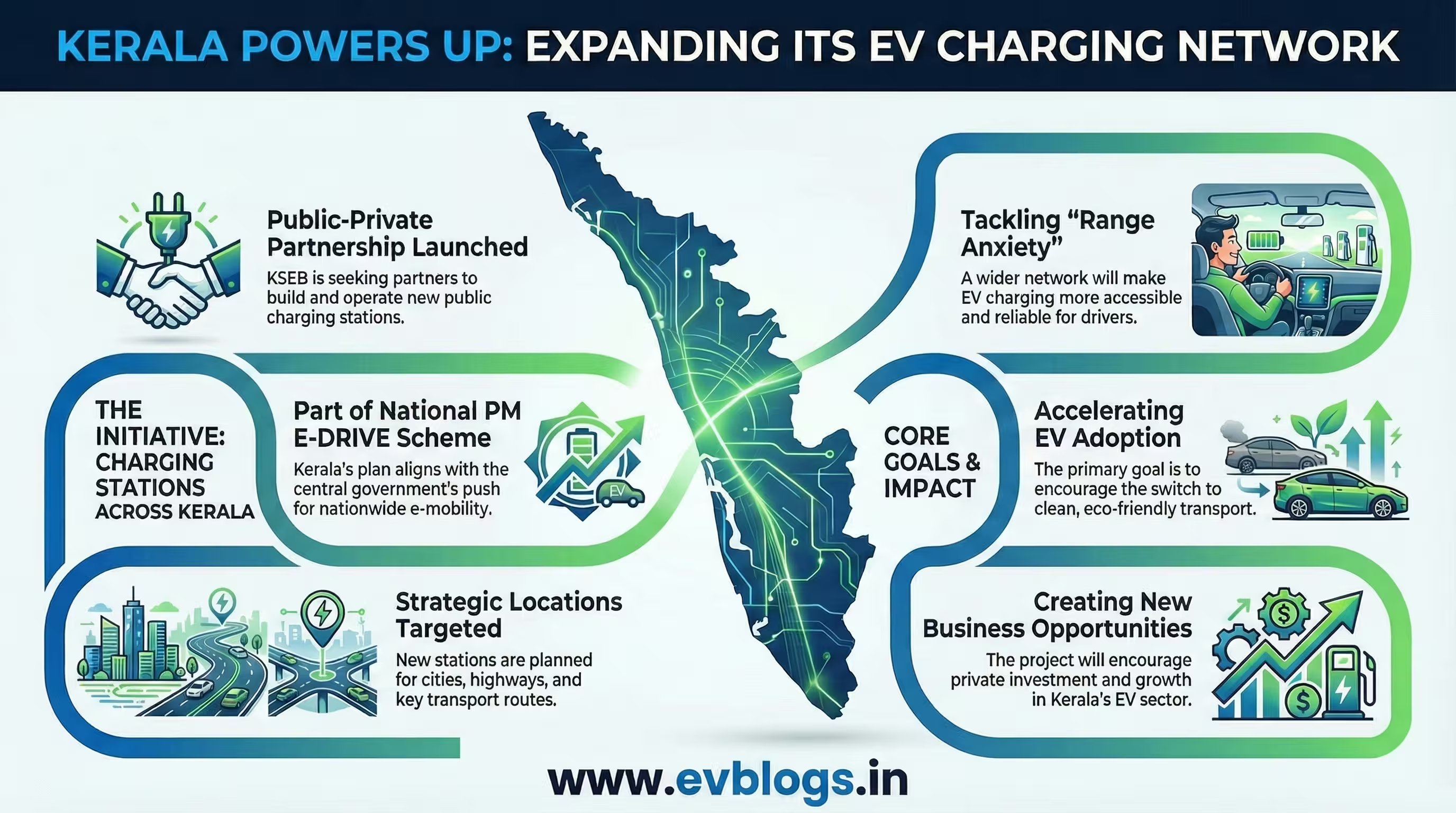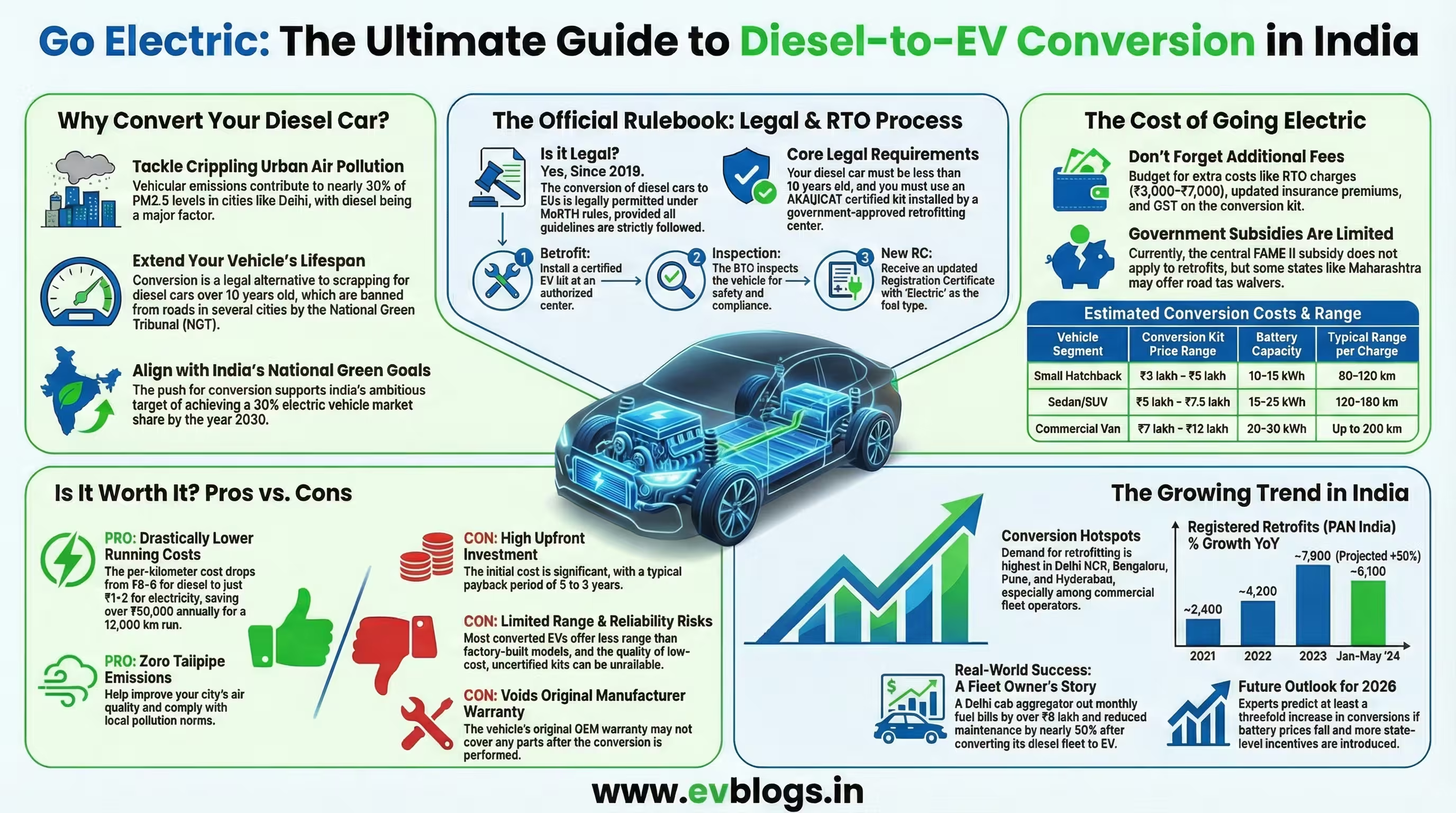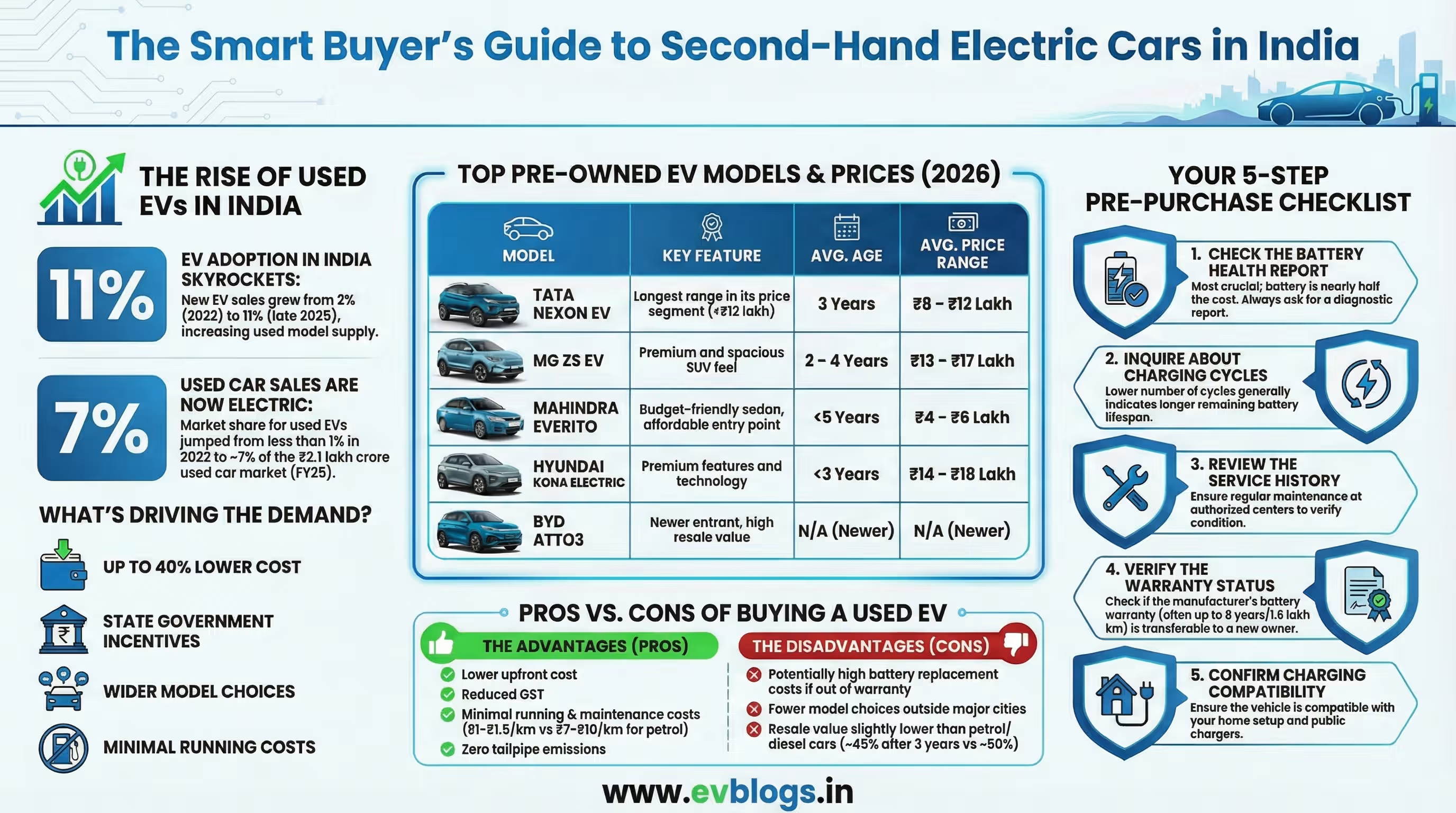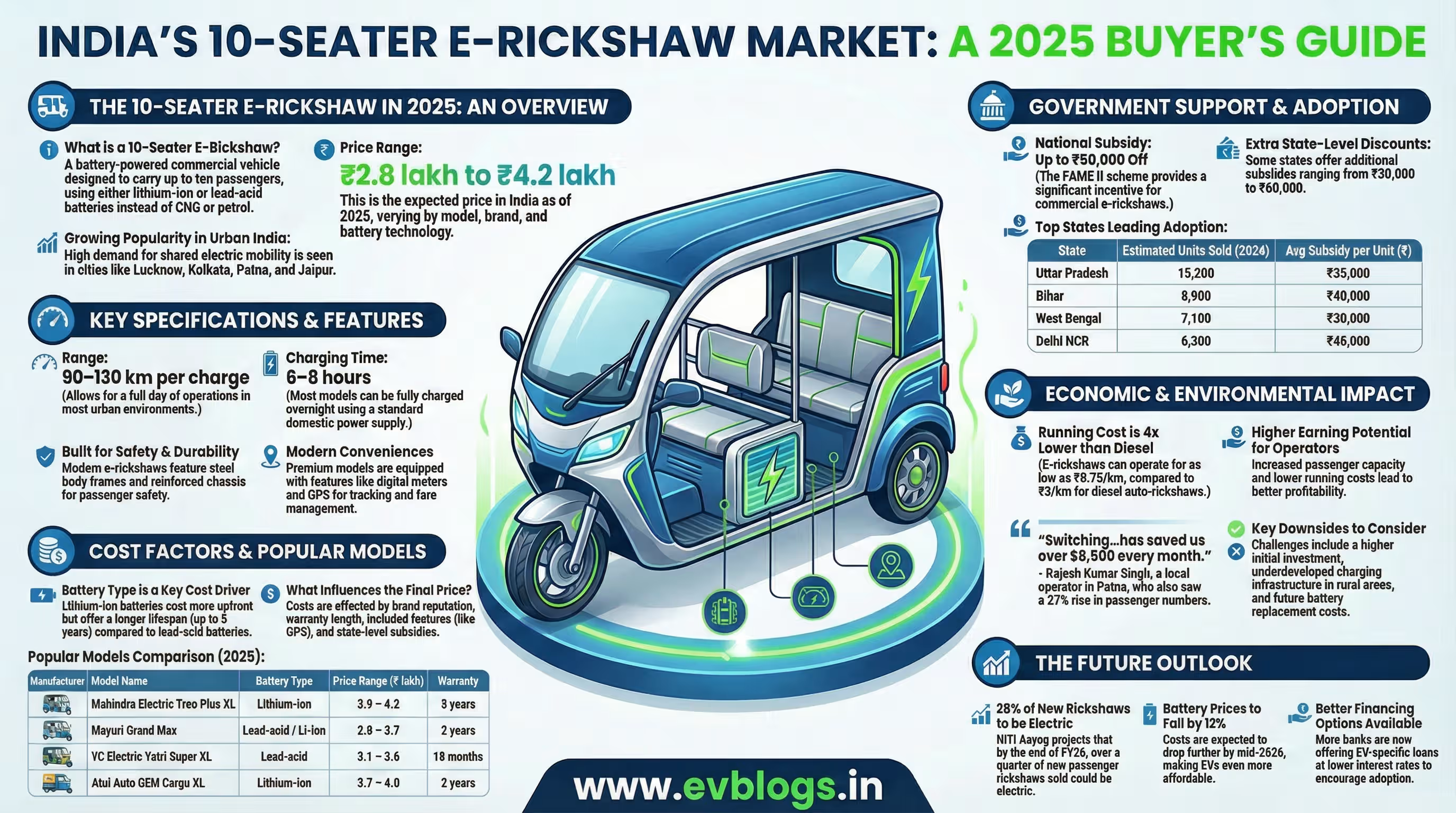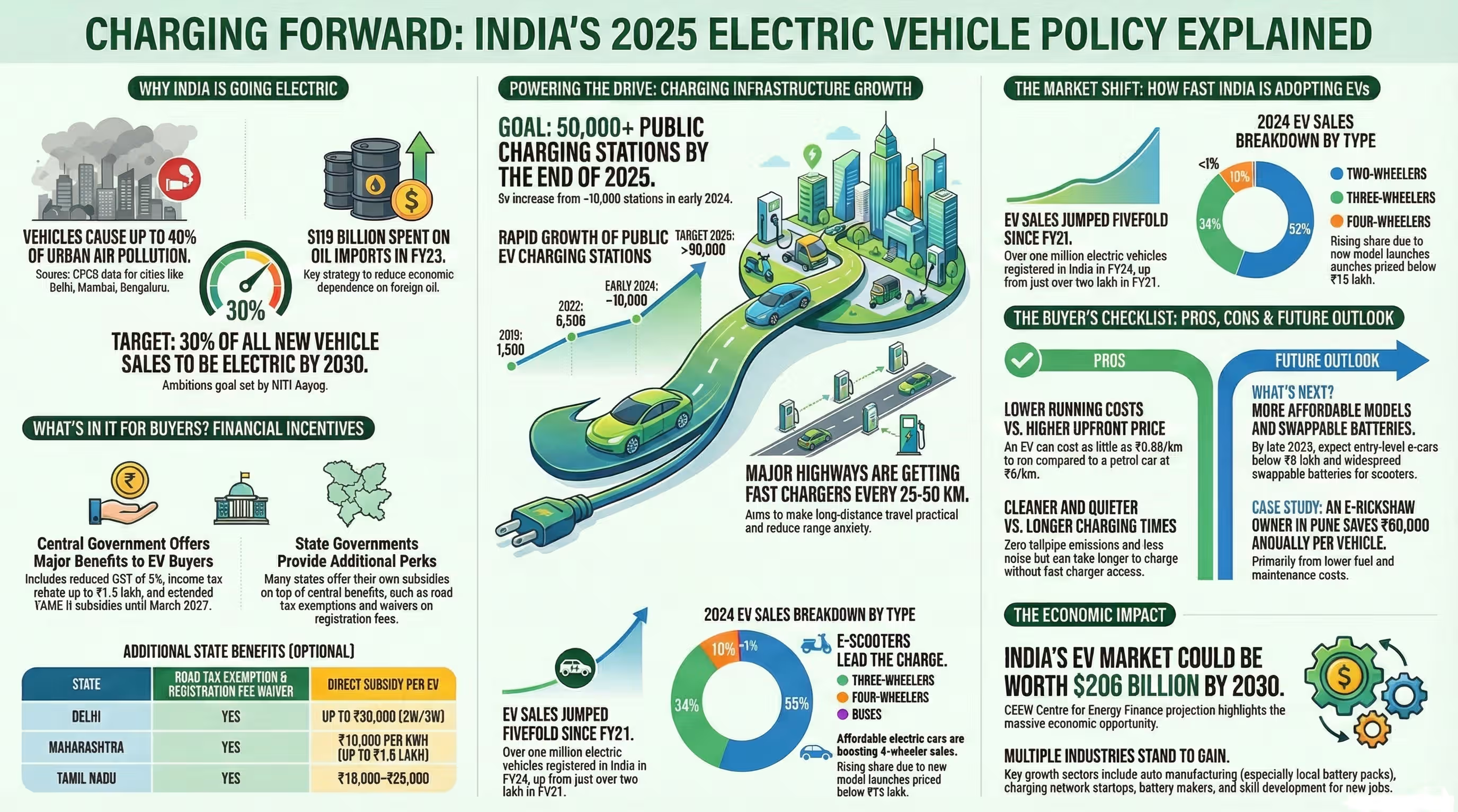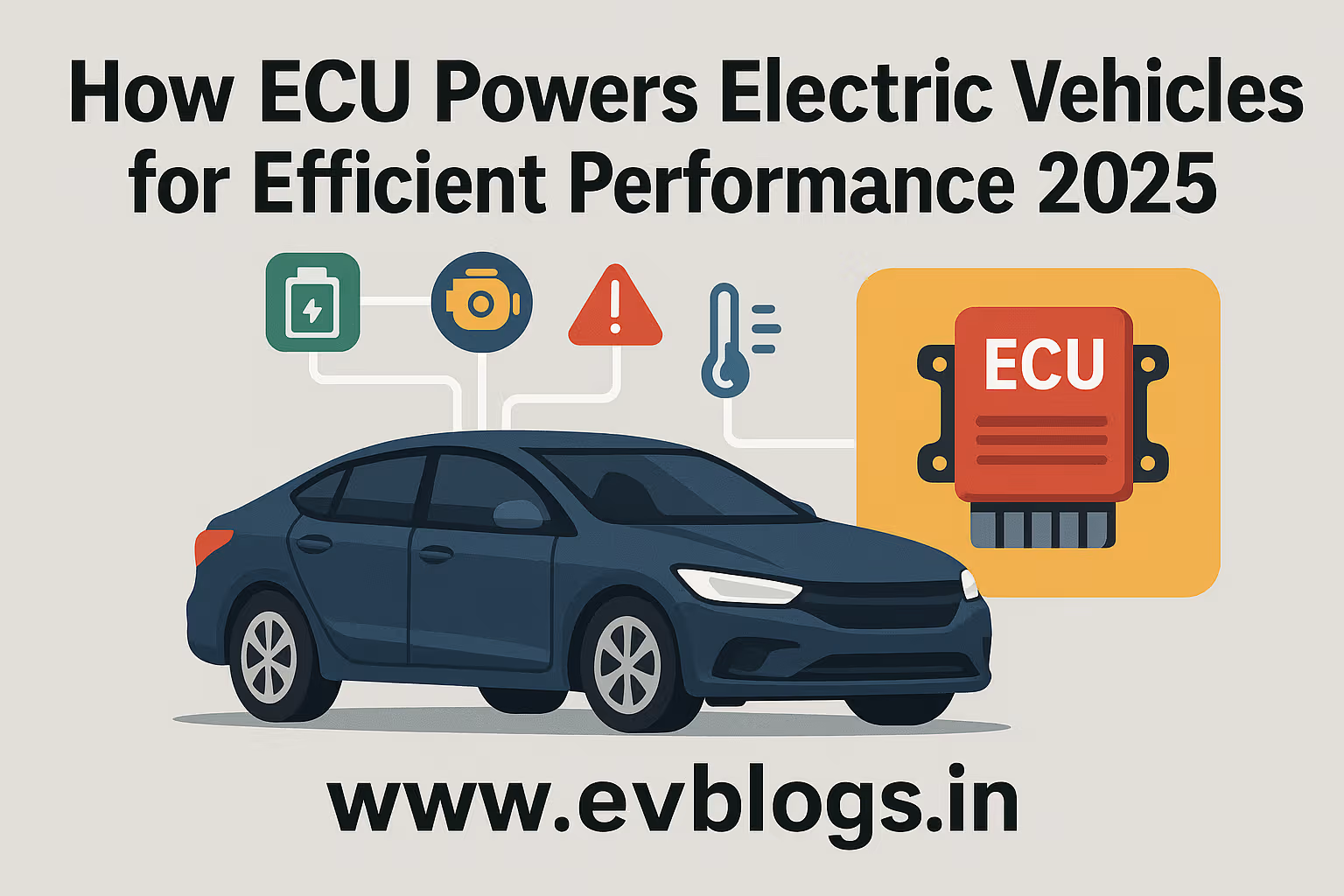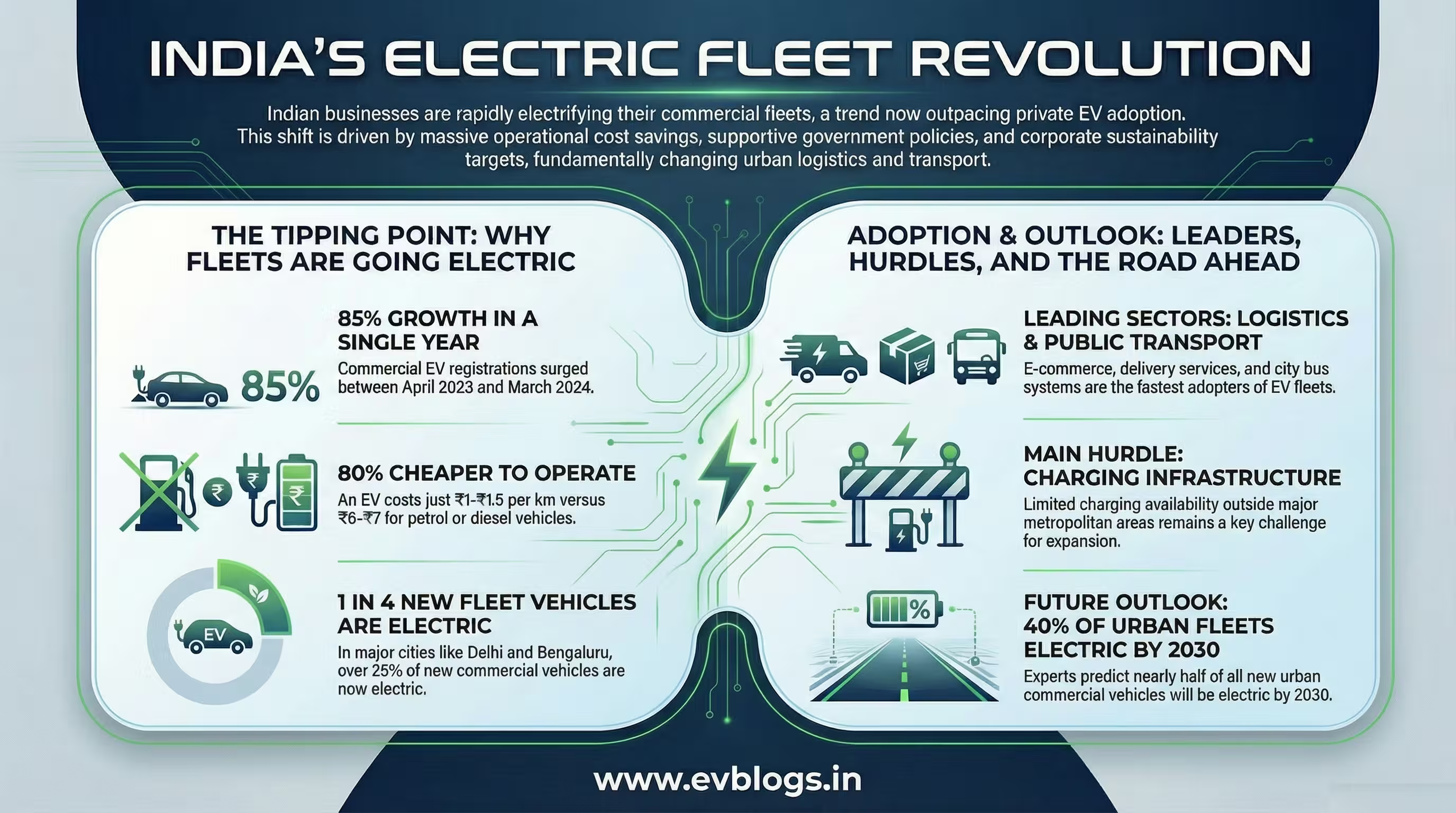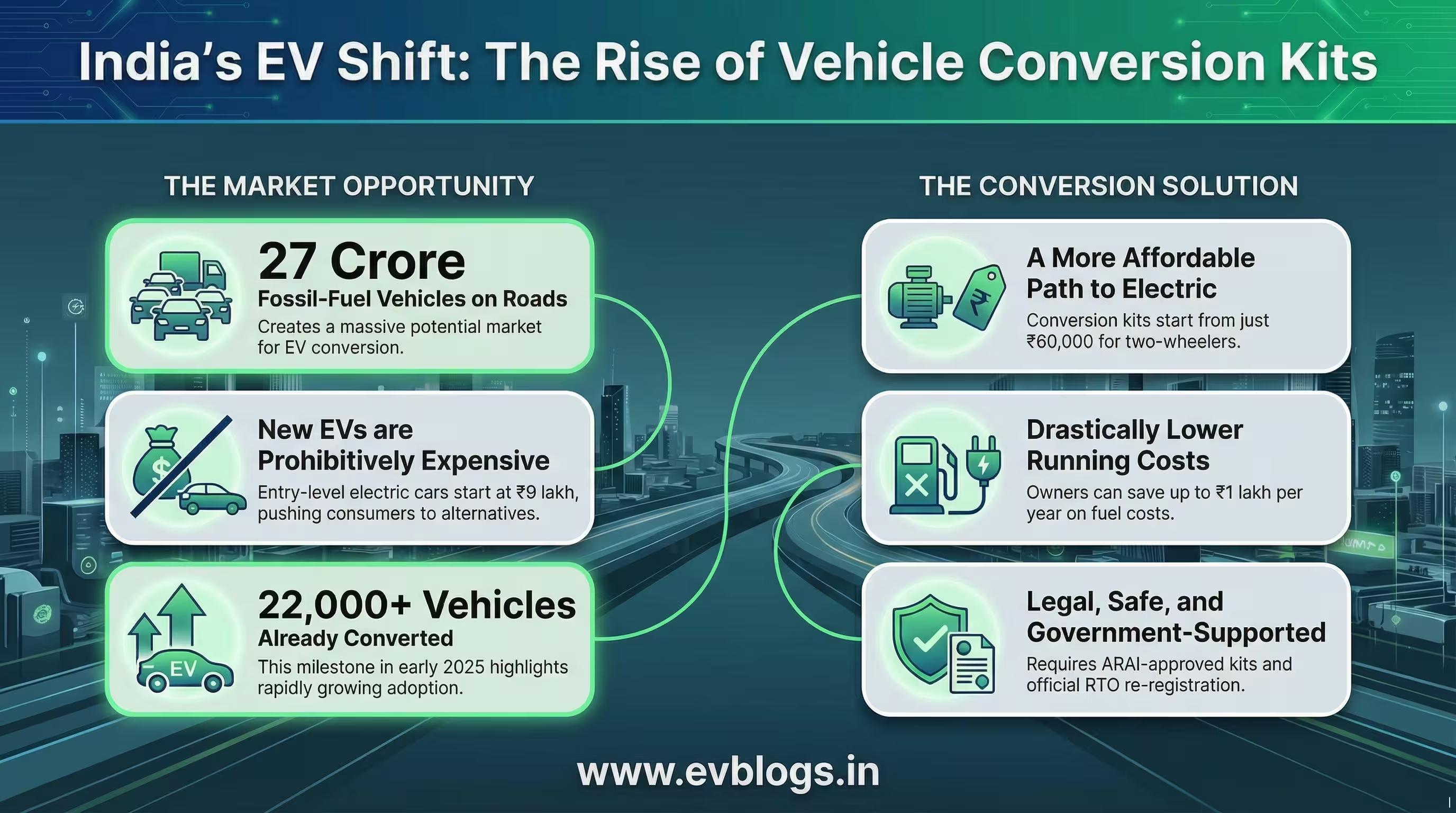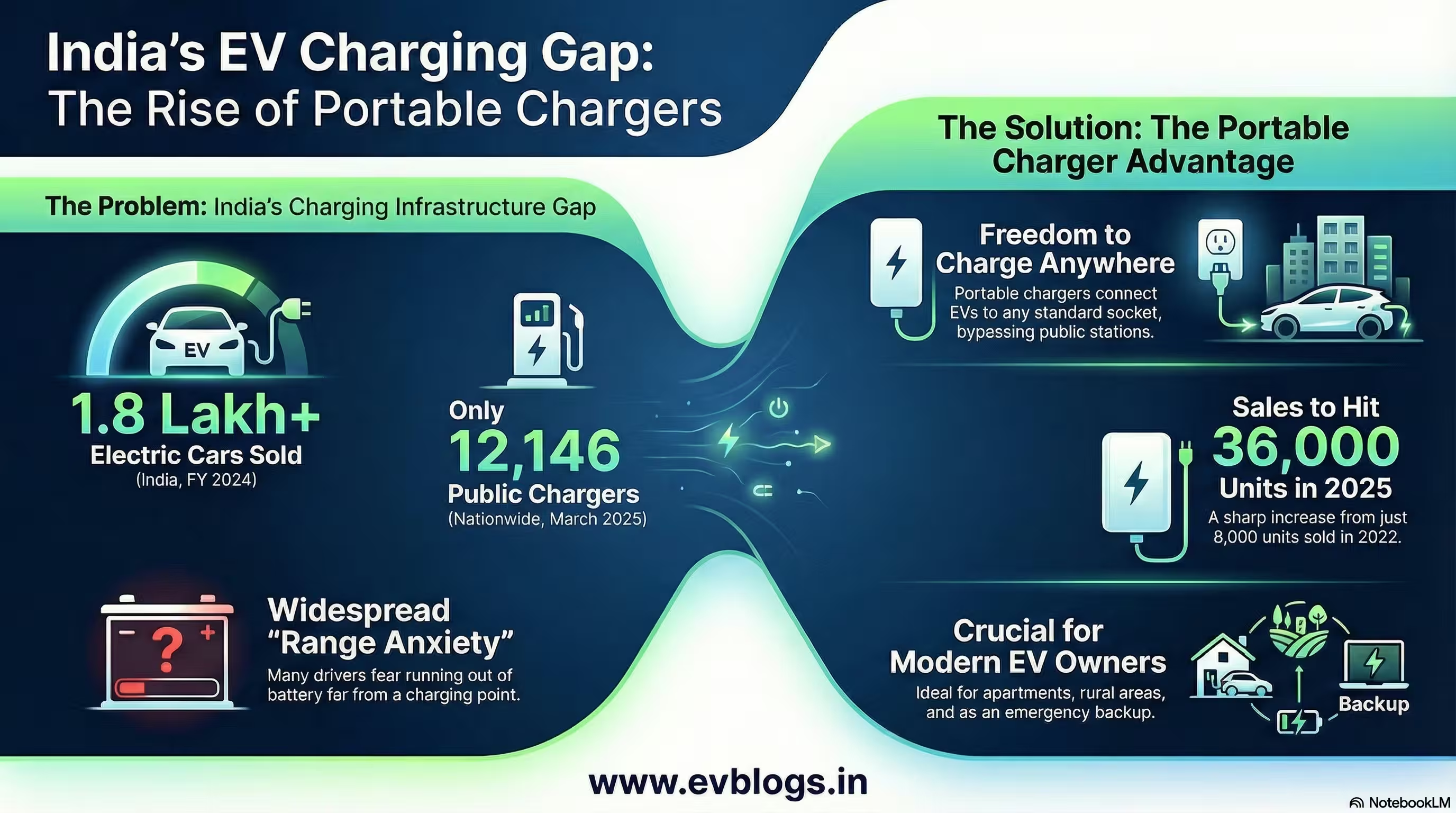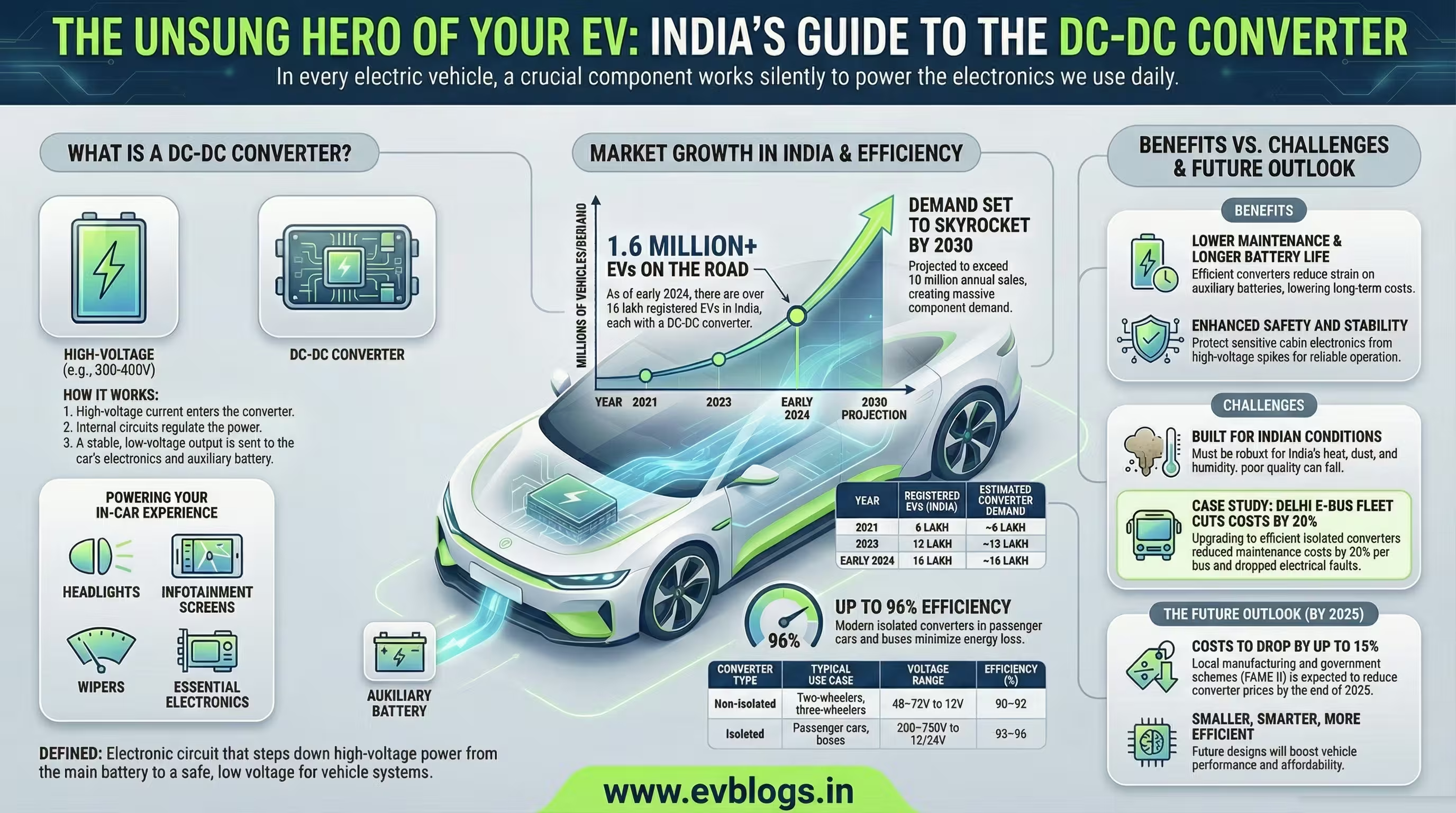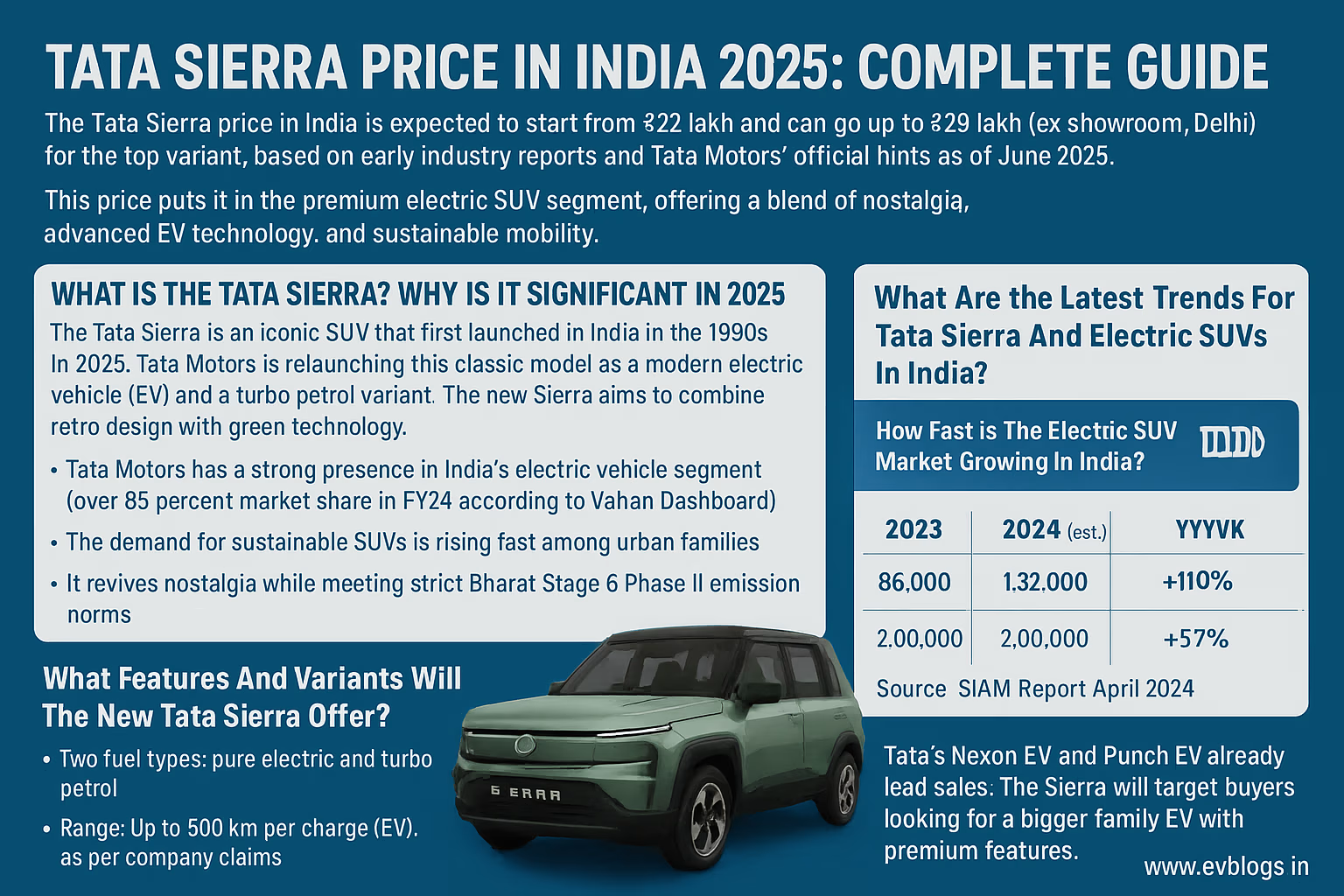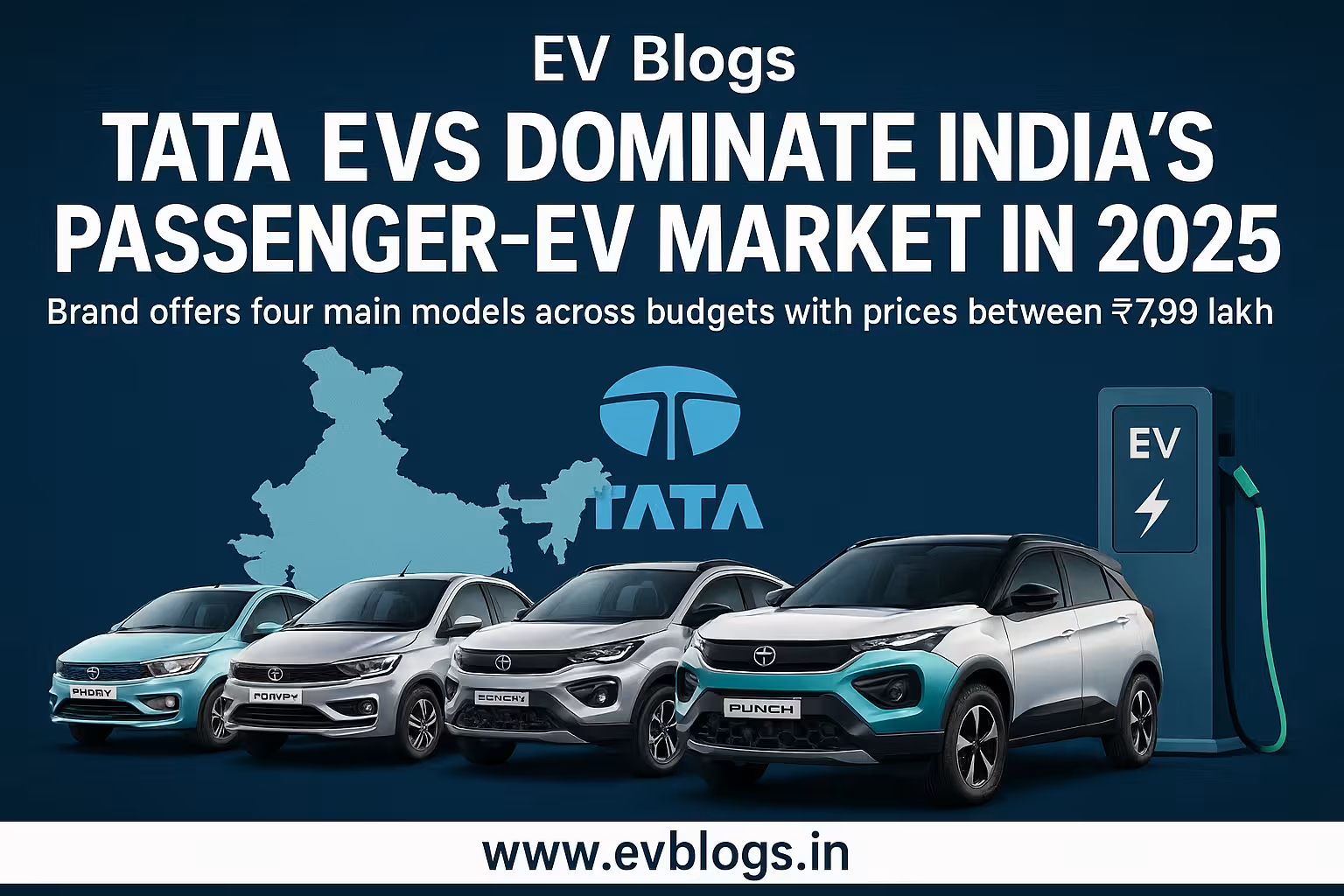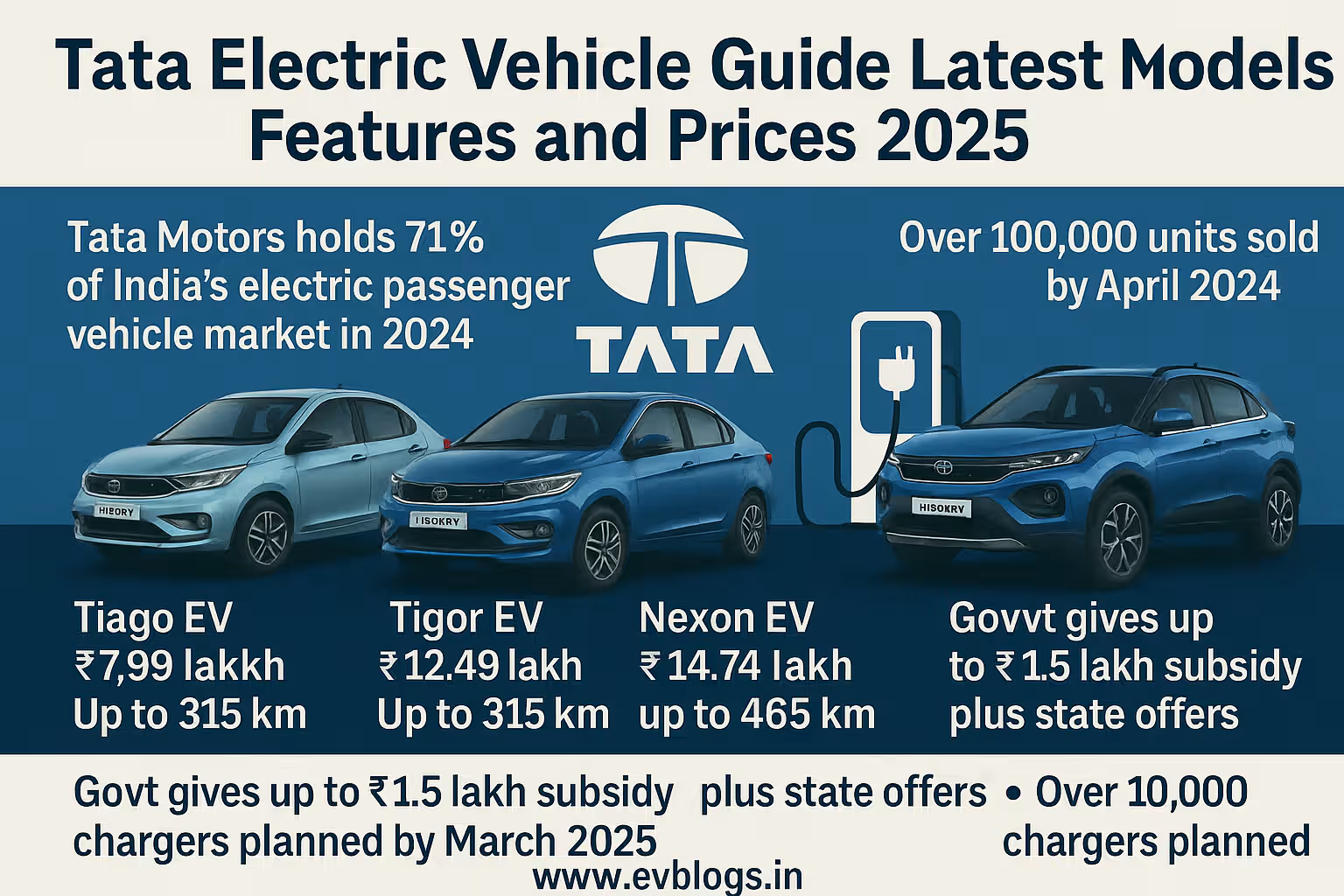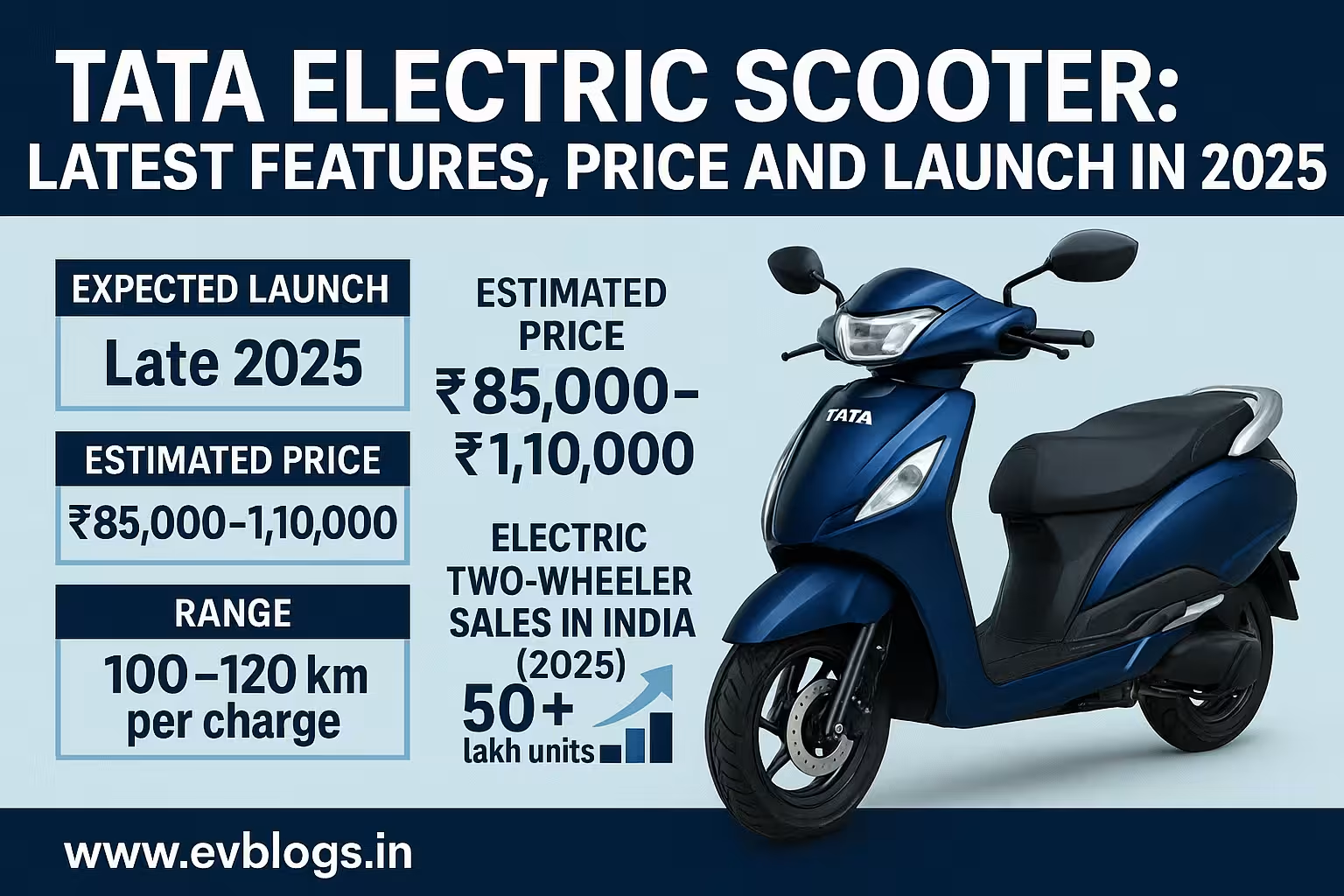Hedhvick Hirav
Hedhvick Hirav is a dedicated EV researcher and editor with over 4 years of experience in India’s growing electric vehicle ecosystem. Their contributions have been recognized in leading sustainability publications and automotive journals.
Summarize & analyze this article with
Choose an AI assistant and open this article directly:
Tip: if the AI doesn’t fetch the page automatically, paste the article URL manually.
Battery car price in India starts from around ₹7 lakh and goes up to ₹35 lakh for popular models in 2025, depending on the brand, range, and features. According to NITI Aayog and industry reports, battery electric vehicles (BEVs) are getting cheaper due to local production, government incentives, and falling battery costs. If you are planning to buy a battery car this year, understanding the latest prices, subsidies, and market trends is key to making a smart choice. This guide gives you updated data, comparisons, and practical tips for Indian buyers.
Understanding Battery Car Price in 2025
Battery car price means the cost you pay for an electric vehicle that runs fully on batteries instead of petrol or diesel. In 2025, Indian buyers can find many options across different price segments.
Why Do Battery Cars Matter in 2025?
India’s government wants more people to use cleaner transport. Battery cars are eco-friendly and help reduce pollution in cities. By 2030, the Ministry of Heavy Industries aims for at least 30 percent of all new cars sold to be electric (NITI Aayog). More battery cars on roads also lower running costs for families and businesses.
Latest Trends: How Are Battery Car Prices Changing?
Battery prices have dropped by about 80 percent worldwide since 2013 (IEA Global EV Outlook 2024). In India, this drop has made EVs more affordable.
What Is Driving the Lower Cost?
- Local manufacturing: More companies now make batteries and cars in India.
- Government support: FAME II subsidies give up to ₹1.5 lakh off on some models (FAME II Portal).
- GST reduction: Electric vehicles have just 5 percent GST compared to 28 percent for petrol/diesel cars.
Price Table: Popular Battery Cars in India (2025)
| Model | Ex-showroom Price (₹ lakh) | Certified Range (km) | Key Features |
|---|---|---|---|
| Tata Tiago EV | 7.9 – 9.5 | Up to 315 | Compact hatchback |
| Tata Nexon EV | 14.8 – 19.9 | Up to 465 | SUV with fast charging |
| MG Comet EV | 6.9 – 8.6 | Up to 230 | Urban city car |
| Mahindra XUV400 | 15.4 – 18.9 | Up to 456 | Spacious SUV |
| Hyundai Kona Electric | 23 – 25 | Up to 452 | Premium crossover |
| BYD Atto3 | 33 – 34 | Up to 521 | High-end SUV |
Source: Company websites & Vahan Dashboard
What Factors Affect Battery Car Price?
How Do Features And Range Influence Cost?
Cars with bigger batteries offer more range but cost more upfront. Advanced safety features or fast charging also add to the price.
Does State Policy Make a Difference?
States like Maharashtra and Delhi give extra incentives on top of central schemes—sometimes up to ₹1 lakh more discount (Delhi EV Policy).
Comparing Battery Cars vs Petrol/Diesel Cars
Is It Cheaper To Own A Battery Car Over Time?
While battery cars may cost more initially than similar petrol models, their running cost is much lower—just ₹1–1.2 per km compared to ₹6–8 per km for petrol (Tata Motors Data).
Running Cost Comparison Table
| Fuel Type | Avg Cost per km (₹) | Annual Saving (10k km) |
|---|---|---|
| Petrol | ~7 | — |
| Diesel | ~6 | ~₹10,000 |
| Battery | ~1–1.2 | ₹50,000–₹60,000 |
Pros and Cons of Buying a Battery Car in India
What Are the Main Benefits?
- Much lower running costs
- Less air pollution
- Government discounts
- Quieter driving experience
Are There Any Drawbacks?
- Higher upfront price
- Charging takes longer than refueling
- Fewer fast-charging stations outside big cities
- Some battery replacement cost after several years
Future Outlook: Where Is The Market Headed?
According to Statista (Statista EV Forecast India), India’s electric car market will grow at over 30 percent CAGR till 2030. By then, battery prices may fall below $70 per kWh—making electric cars cheaper than petrol ones even before subsidies.
Case Study: In Mumbai, a family switched from a mid-sized sedan (petrol) costing ₹12 lakh plus annual fuel bills of ₹70,000+, to an EV at ₹14 lakh with only ₹12,000 yearly charging costs—recovering extra investment within three years.
Steps To Buy A Battery Car in India
- Compare brands and models based on your daily driving needs.
- Check state-wise subsidy eligibility.
- Test drive your shortlisted models.
- Look for financing or leasing options.
- Confirm charging setup at home or nearby locations.
- Complete purchase through authorised dealer or brand website.
Quick Recap: Key Stats & Takeaways
- Battery car price in India ranges from ₹7–35 lakh in early 2025.
- Running costs can be 80% less than petrol vehicles.
- Central + state incentives can save buyers up to ₹2–2.5 lakh.
- Over 2 million EVs registered nationwide, with sales growing by 30% annually (Vahan Portal).
- Affordable models now available in metro cities and Tier-II towns.
People Also Ask
Q1: Which is the cheapest battery car in India right now?
A: As of early 2025, MG Comet EV starts around ₹7 lakh ex-showroom making it one of the most affordable options.
Q2: How long does a battery last in these cars?
A: Most batteries last between 8–10 years, with warranties offered by major brands covering up to eight years.
Q3: Can I charge my battery car at home?
A: Yes, most owners charge overnight using regular or upgraded sockets; fast chargers are also expanding across cities.
Q4: Is insurance for battery cars expensive?
A: Insurance rates are usually similar or slightly higher due to new technology but balanced by government incentives (IRDAI Data).
Q5: Will I get subsidy if I buy an electric car after March 2025?
A: Central FAME II scheme is likely till March but many states may continue local subsidies beyond that date—check official policy updates regularly.
Ready to make the switch?
Compare battery car prices online using official portals like Vahan Dashboard or visit your nearest dealership today! For personalized advice or financing help, reach out directly via manufacturer helplines or trusted auto consultants—and drive into a greener future confidently!


